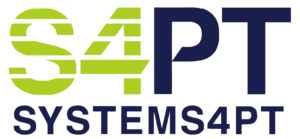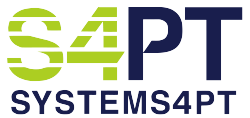CMS Final Rule for 2019. If You’re Not Angry, You’re Not Paying Attention.
On November 1st, the CMS released its final rule relating to outpatient rehab payments for 2019. We’ve listed the highlights of this announcement (the black font).
This outtake from the final rule attempts to simplify/speed up documentation.
- For established patient office/outpatient visits, when relevant information is already contained in the medical record, practitioners may choose to focus their documentation on what has changed since the last visit, or on pertinent items that have not changed, and need not re-record the defined list of required elements if there is evidence that the practitioner reviewed the previous information and updated it as needed. Practitioners should still review prior data, update as necessary, and indicate in the medical record that they have done so;
- Additionally, we are clarifying that for E/M office/outpatient visits, for new and established patients for visits, practitioners need not re-enter in the medical record information on the patient’s chief complaint and history that has already been entered by ancillary staff or the beneficiary. The practitioner may simply indicate in the medical record that he or she reviewed and verified this information
These instructions aim to simplify note-taking. Paraphrasing: The therapist does not need to write a book for each patient visit. The therapist does not need to rehash what was already documented on earlier notes. The therapist simply needs to document what changed, relative to the selected functional deficit.
Systems 4PT is the only leading EMR that allow point-of-care documentation. Following our daily visit workflow, when the therapist is done treating the patient, the note is signed. The approach to documentation defined by CMS, above, is precisely how our EMR flows. In fact, Systems 4PT highlights the most-clinically relevant functional deficit in the daily note, enabling a quick update of progression, which is obviously what matters most.
The next topic relates to a major change in how the CMS will reimburse outpatient rehab. The proposal is that beginning in 2021, patients’ diagnoses will be stratified into different levels of severity. Documentation for less severe patients will be minimized and will receive a fixed reimbursement.
Beginning in CY 2021, CMS will further reduce burden with the implementation of payment, coding, and other documentation changes. Payment for E/M office/outpatient visits will be simplified and payment would vary primarily based on attributes that do not require separate, complex documentation. Specifically for CY 2021, CMS is finalizing the following policies:
- Reduction in the payment variation for E/M office/outpatient visit levels by paying a single rate for E/M office/outpatient visit levels 2 through 4 for established and new patients while maintaining the payment rate for E/M office/outpatient visit level 5 in order to better account for the care and needs of complex patients;
- Permitting practitioners to choose to document E/M office/outpatient level 2 through 5 visits using medical decision-making or time instead of applying the current 1995 or 1997 E/M documentation guidelines, or alternatively practitioners could continue using the current framework;
- Beginning in CY 2021, for E/M office/outpatient levels 2 through 5 visits, we will allow for flexibility in how visit levels are documented— specifically a choice to use the current framework, MDM, or time. For E/M office/outpatient level 2 through 4 visits, when using MDM or current framework to document the visit, we will also apply a minimum supporting documentation standard associated with level 2 visits. For these cases, Medicare would require information to support a level 2 E/M office/outpatient visit code for history, exam and/or medical decision-making;
- When time is used to document, practitioners will document the medical necessity of the visit and that the billing practitioner personally spent the required amount of time face-to-face with the beneficiary;
CMS believes these policies will allow practitioners greater flexibility to exercise clinical judgment in documentation, so they can focus on what is clinically relevant and medically necessary for the beneficiary. CMS intends to engage in further discussions with the public to potentially further refine the policies for CY 2021.
The proposal states that for lower complexity deficits, therapists will be paid a single rate. Note that 75% of the patients (levels 2 through 4) are considered low complexity and only level 5 maintains the current payment rate “to account for the care and needs of complex patients.”
What’s going on here?
Is it accurate that 75% of your caseload is not complex?
And what is this “Single Rate” payment that will be used for 75% of treatments?
We can find a hint in a 9/18/18 APTA article “APTA, Other Healthcare Leaders Call for CMS to Rethink Evaluation and Management Payment Plan.” The article emphasizes the concept of “patients over paperwork.” No one would argue against that, right?
The article discusses a proposed 5-level complexity system accompanied by a new reimbursement approach. Quoting the APTA, reimbursement levels for lower complexity patients “will see reductions based on the 2019 proposed relative value units. However, CMS argues, the reduced paperwork burden would offset the payment drop.”
Lower-complexity patients will soon receive lower reimbursements. All of which is touted as progress because of lower documentation requirements.
Systems 4PT’s assessment is that the APTA is tone deaf and disconnected from the realities relating to both private practice and EMR technology. Documentation with state of art EMR is getting increasingly faster. There is no need to lower documentation requirements (and payments).
Our concern is that the APTA seems to be willingly encouraging LOWER reimbursements for the majority of patient visits, in return for addressing these problems that have already been solved.
If you’re not angry, you’re not paying attention.
Signup for More MIPS and CMS Updates or
Request a Demo and See How Systems 4PT can Help Your Clinic

